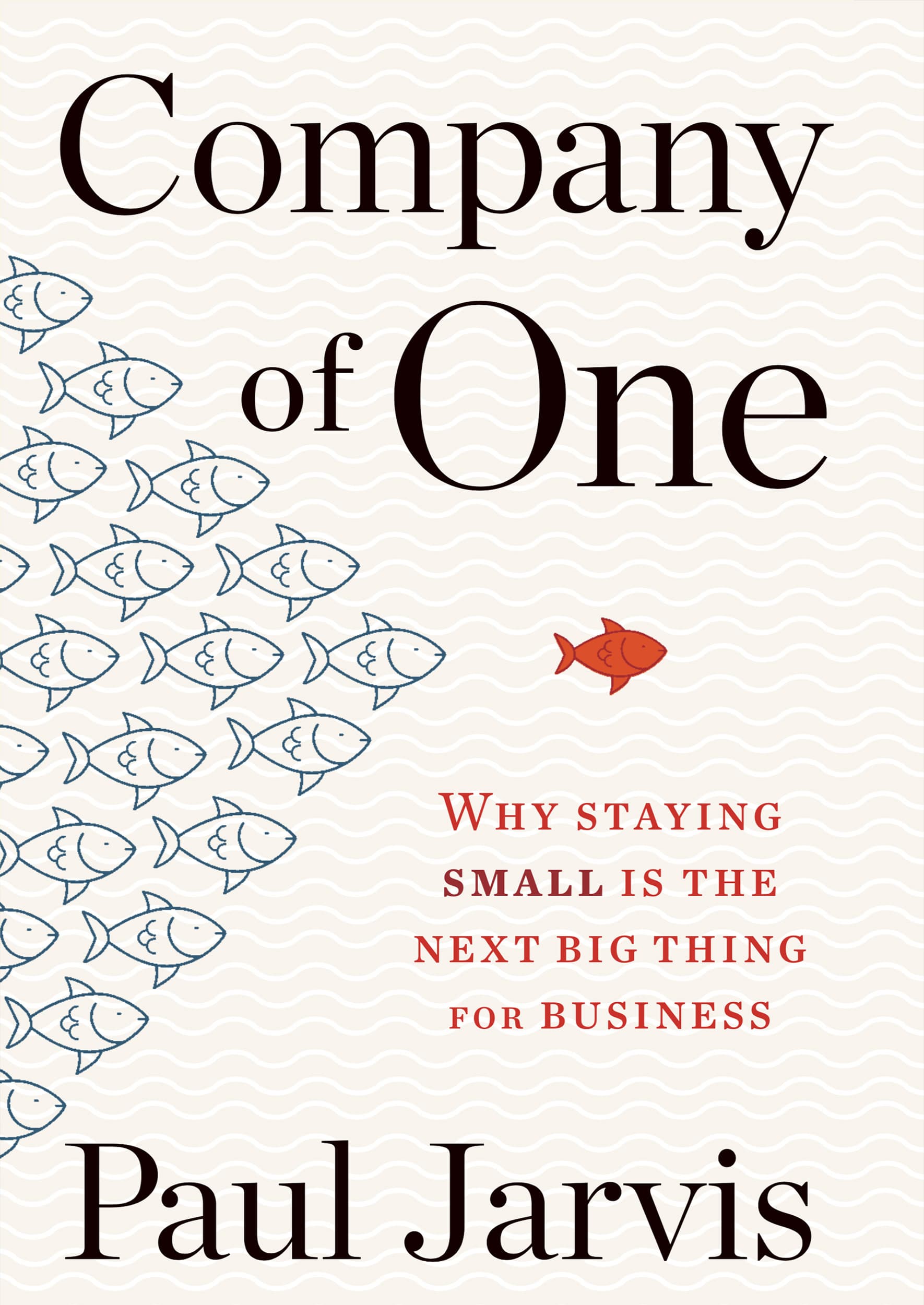

by Rachel Smith
01 March 2019
Confession: I love a great business book that helps me write better, improve my skills or manage my freelance business in a more cost-effective way. In fact, I have a shelf full of them, because in our ever-evolving industry there’s always something to learn, right? And I’ve long been a fan of Paul Jarvis: author, designer, entrepreneur extraordinaire and writer of the Sunday Dispatches newsletter and new book, Company of One: Why staying small is the next big.
Packed full of tips, strategies, stories and valuable advice, Company of One explores everything from figuring out your purpose as a freelancer, to why following your passion is irresponsible business advice. He touches on pricing your services, building your personality into your brand, and turning your clients into your ‘unpaid sales force’. Perhaps the best message, though, is how we can all work better instead of working more (cheers to that!). Here are some questions I put to Paul about his new book.
 What motivates people to strike out on their own in the freelance world, or create their ‘company of one’?
What motivates people to strike out on their own in the freelance world, or create their ‘company of one’?Mostly it’s the desire for freedom. It’s the initial reason most people start their own business. Not more money. Most people just want to build a business that supports their life, and not a life that exists solely to support their business. A freelancing in America study found that 84 percent care more about their lifestyle than earnings.
Completely important. Most of us exist in markets where a lot of other people do with the same skillset as we have. Personality is the differentiator. Personality is why you get hired to write copy instead of the 1,000 copywriters that could been hired.
It’s just a matter of weaving who we are and the unique experiences we have into what we do and how we teach others. This why I write a weekly newsletter (which generates most of my revenue each year). It’s why I’m not afraid to take a stand on important issues. It’s why I’m afraid to be my true, weird self, even when I’m pitching for a sale.
If we’re a small business or a freelancer, when the economy takes a downturn, businesses typically have smaller budgets. This works out for us because we don’t have to charge as much as huge agencies because our overhead is much lower. So it makes freelancers more suitable to hire when things are tight.
Plus, as a freelancer, we can keep our margins high by not spending a great deal on our business, and saving as much as we can. That way if things get bad, we have a buffer saved up or clients who want a high quality of work but can no longer afford the large agencies (and their padded pricing).
This speaks to resilience, and resilience is more useful in business than education, training or experience (as found out through a study done by by Dean Becker, CEO of Adaptiv). Resilience requires three key traits:
1. An acceptance of reality, because we can’t control everything (like markets or consumers).
2. A sense of purpose, because even if things are going poorly, you still have a direction that makes sense.
3. Ability to adapt, because we have to change when things change.
If someone solely enjoys their main skillset and doesn’t care to do all the other work involved in running a business, they should stay working for someone else. For example, a writer who solely wants to write, should just write for a company. That way HR takes care of people management, Sales/Marketing takes care of new clients, and Accounting takes care of bills. When you work for yourself you’re lucky if half your time can be dedicated to your core skillset. This is great for some, but not everyone.

I think established freelancers and small businesses are the trend. Technology has given us cheap tools to do work that used to take a lot of time or people to do. Now I can send an email to 30,000 in the same amount of time as sending it to one, using mailing list software. Or I can bill 1,000 customers using a system like Stripe or Paypal that took 5 minutes to set up.
As far as ‘enough’ work goes, it depends on the market. Business is and always has been, ‘Did we create something that other people want to pay us for?’ so the market will always show us if there’s demand or not for our freelancing. If we have a mastered skillset that others make money from, it’s just a matter of finding the right market for it.
A lot of times freelancers are on a constant quest for new clients, new business, new projects. When in reality, most who have been doing it for any length of time already have a list of people who were willing to give them money once: their previous clients. If we keep in touch with people we’ve worked with in the past, and reach out to them on occasion to see if they need more work or know someone who does, we can always keep our funnels full of new leads.
The best way I’ve found to stay productive is to just take on less. There’s no secret or magic bullet to getting work done much faster than anyone else, so if we stay honest about how much we can actually accomplish and only take on what can be done without overworking or stressing out, we’ll be in a better place to do work in the long term.
Company Of One is available to buy here.